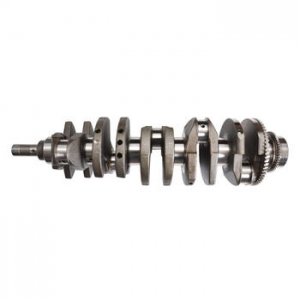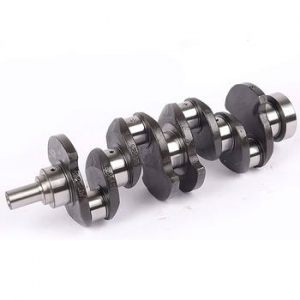The Importance of Crankshafts in Automotive Manufacturing
To be honest, crankshafts are a critical component in automotive manufacturing. They convert the linear motion of the pistons into rotational motion, which powers the engine. For a company like Toyota, producing high-quality crankshafts is absolutely necessary to maintain their reputation for reliability and performance.
The Challenge of In-House Production
However, producing crankshafts in-house can be a complex and costly process. It requires specialized equipment, skilled labor, and a significant investment in research and development. For many automotive manufacturers, it simply doesn't make sense to take on this burden themselves.
The Solution: Contract Manufacturing
This is where contract manufacturing comes in. By outsourcing the production of crankshafts to a third-party supplier, Toyota can focus on their core competencies and leave the manufacturing to the experts. This can result in numerous benefits, including:
Cost Savings
Improved Quality
Frankly speaking, contract manufacturers have a vested interest in producing high-quality crankshafts. Their reputation depends on it. As a result, they often invest in state-of-the-art equipment and rigorous quality control processes to ensure that every crankshaft meets Toyota's exacting standards.
Increased Flexibility
In my experience, one of the biggest advantages of contract manufacturing is increased flexibility. By partnering with a supplier, Toyota can quickly ramp up or scale down production as needed to meet changing demand. This can help them avoid costly inventory buildups and ensure that they always have the right number of crankshafts on hand.
Choosing the Right Contract Manufacturer
Of course, not all contract manufacturers are created equal. When choosing a supplier for Toyota crankshafts, it's important to consider factors like:
Expertise and Experience
- How long has the supplier been in business?
- Do they have experience producing crankshafts for other automotive manufacturers?
- What kind of equipment and processes do they use?
Quality Control
- What kind of quality control processes does the supplier have in place?
- Do they have any certifications or accreditations that demonstrate their commitment to quality?
Communication and Collaboration
- How well does the supplier communicate with their customers?
- Are they responsive and proactive in addressing any issues or concerns?
- Do they work collaboratively with their customers to develop custom solutions?
Conclusion
In conclusion, contract manufacturing can be an extremely effective way for Toyota to improve efficiency, reduce costs, and enhance quality in the production of crankshafts. By partnering with the right supplier, Toyota can leverage their expertise and experience to produce high-quality crankshafts that meet their exacting standards. If you're interested in learning more about contract manufacturing for Toyota crankshafts, be sure to do your research and choose a supplier that you can trust.




